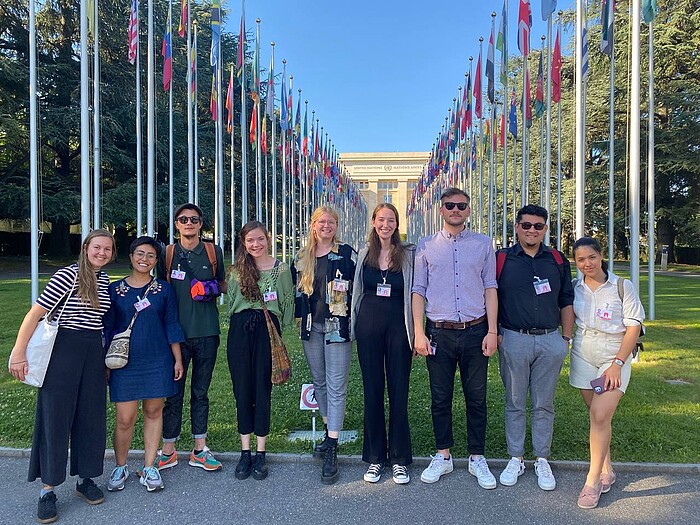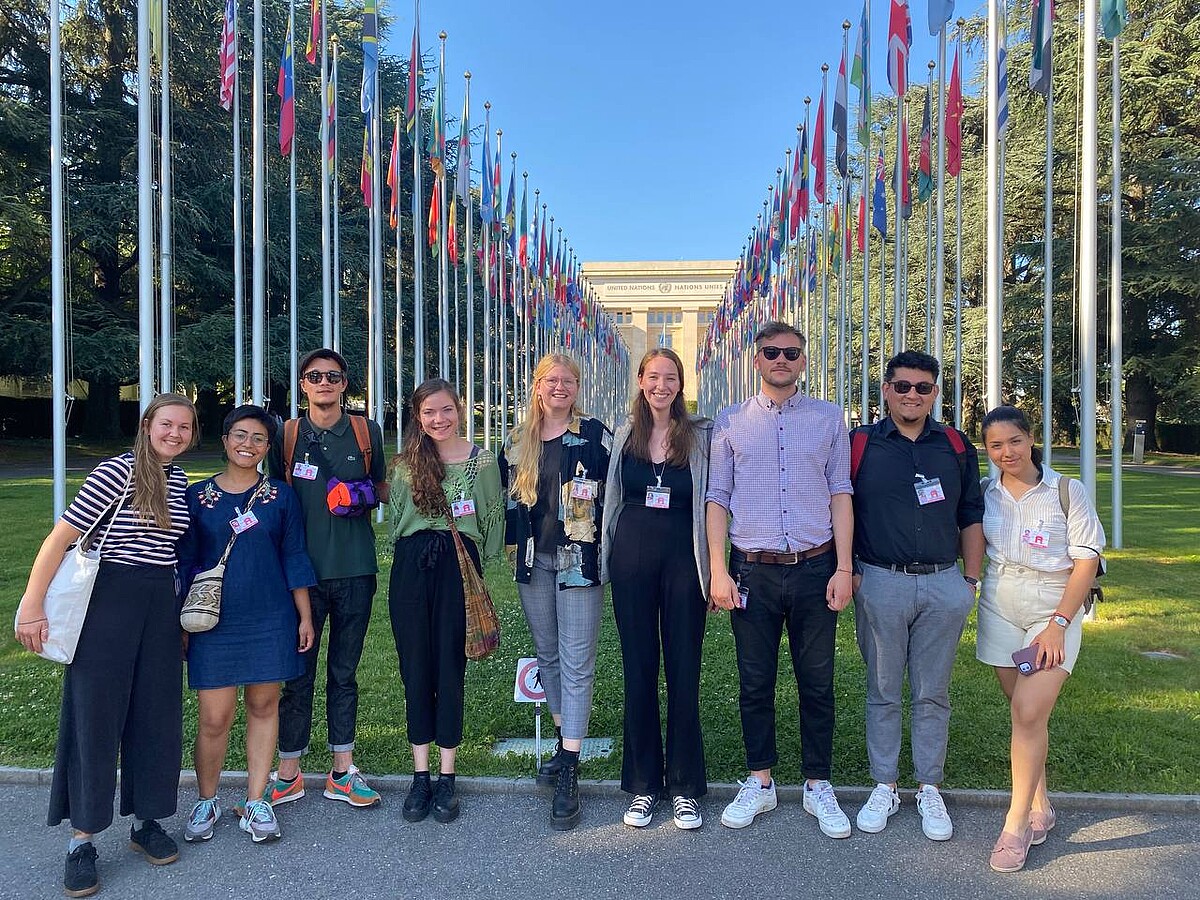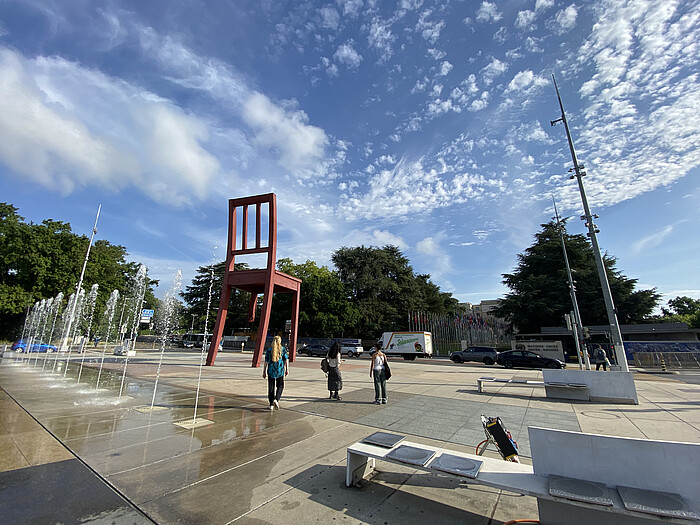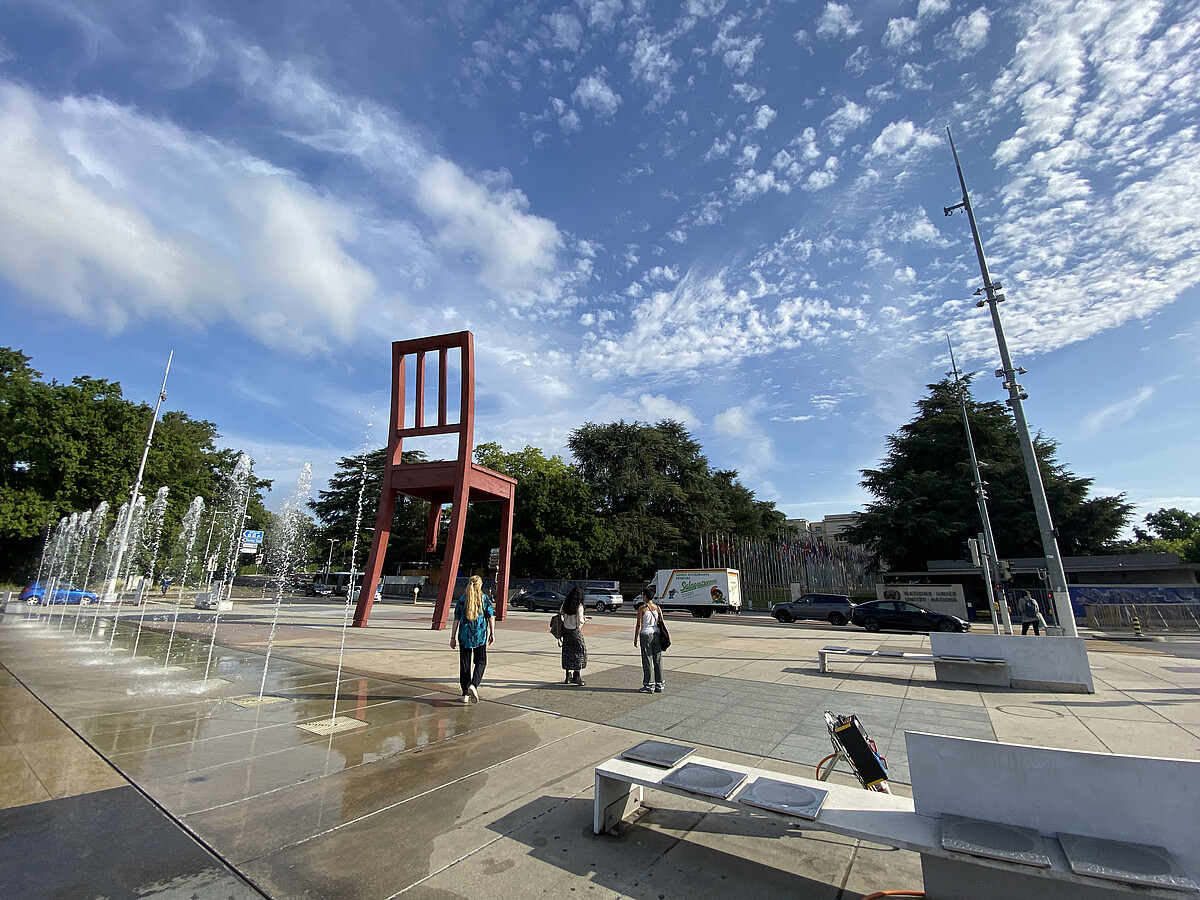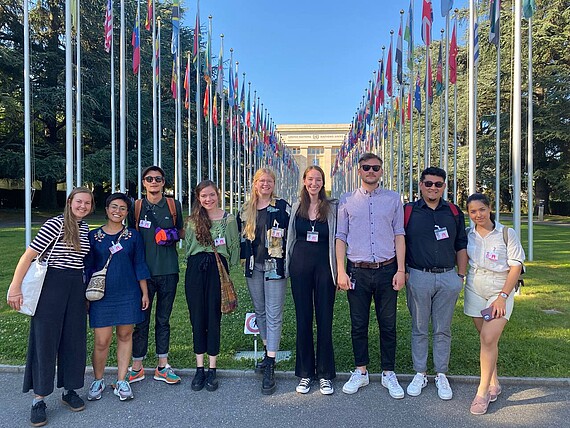
In July 2022, we travelled to Geneva with a group of eight students, supervised by Dr. Javier Lastra-Bravo, to participate in the conference on indigenous rights, the Expert Mechanism on the Rights of Indigenous Peoples (EMRIP), in the premises of the United Nations (UN). In preparation for the excursion, block seminars were held in which we dealt with the organisational structure of the UN on the one hand and the individual and collective rights of indigenous peoples, with a focus on the South and Central American region, on the other.
The EMRIP took place for the fifteenth time this year from 4 to 8 July. This five-day conference brings together representatives of indigenous peoples, states, academia and organisations of pueblos indígenas and non-governmental organisations (NGOs) to discuss the rights of indigenous peoples in accordance with the United Nations Declaration on the Rights of Indigenous Peoples (UNDRIP)1. On the one hand, the aim is to provide the UN Human Rights Council with expertise and advice on the rights of pueblos indígenas by giving indigenous delegates a platform to articulate; on the other hand, member states of the UN are advised and supported with regard to the realisation of the UNDRIP as well as ILO Convention 169 for concrete measures such as laws, policies and programmes2.
We students wore an A, for Academics, on our badge during the conference. We had free choice of seats in the imposing conference hall where the plenary sessions were held. Depending on the time of day and the topic of discussion, it was usually half full. Due to the pandemic situation, the side events took place exclusively online, which is why we mostly stayed in the plenary hall. The group affiliations of the different actors triggered a special dynamic: There was a clear division of the indigenous delegates from the other representatives, while especially the state representatives, the only people in the room who had a written designation in place, appeared rather isolated. Overall, it was shocking to see that some countries and groups were clearly overrepresented, while others were not represented at all.
The range of topics was endless and at the same time it was frightening that many challenges and problems overlapped in the different socio-cultural regions of indigenous groups. Similarly, the rights to the existence of indigenous groups were also denied across regions. An omnipresent topic was also the Russian war of aggression, which was first condemned by an indigenous delegate from the region of Siberia and then taken up again in various topics.
In addition to these experiences during the plenary sessions, we as a group used the 1 ½ hour lunch breaks to get in touch with different actors. Dr Lastra Bravo organised a meeting with Rodrigo Paillalef, who was elected as the Mapuche representative for Latin America for the Permanent Forum on Indigenous Issues3 from 2023. We also organised an exchange with the independent NGO Docip, which is largely responsible for the organisation of the EMRIP and therefore plays an important role; as a contact person for indigenous delegates but also as a bridge between the UN and indigenous groups.
Participating in the EMRIP was a very special and unique experience, hearing indigenous delegates themselves speak about their rights and witnessing live how this improves and manifests the legal basis and legitimacy of these specific rights vis-à-vis state representatives and transnational institutions. At the same time, this experience raised many questions in me about my own position and showed very clearly what kind of unequal world we live in and what consequences colonialism and the capitalist manifestations of globalisation have that basic fundamental rights for marginalised groups in society really need to be discussed. Even though we were only spectators at this conference, I can speak for myself that this experience had a significant impact on me.
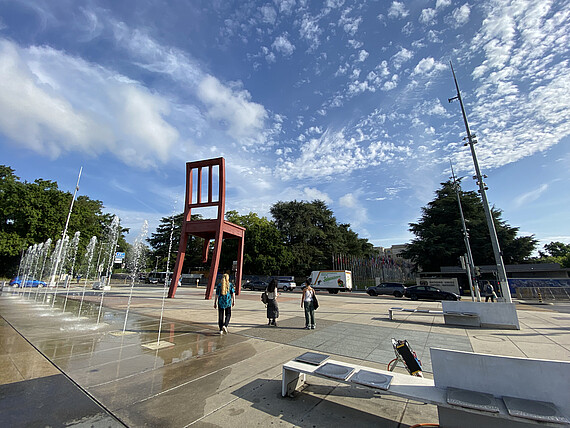
Lilith Jarlik
Student | M.A. Atlantic Studies/ History, Culture and Society |M.A. of Education: Spanish and Political Science/Economics
1United Nations (2007): Erklärung der Vereinten Nationen über die Rechte der indigenen Völker, Resolution/61/295,13 New York: online unter: https://www.un.org/esa/socdev/unpfii/documents/Declaration(German).pdf (21.05.2024)
2United Nations (2022): Expert Mechanism on the Rights of Indigenous Peoples, online unter: https://ohchr.org/en/hrc-subsidiaries/expert-mechanism-on-indigenous-peoples (11.07.2022).
3United Nations (2022): Foro Permanente para las Cuestiones Indígenas de la ONU (UNPFII), online unter: https://social.desa.un.org/es/issues/los-pueblos-indigenas/unpfii (21.05.2024).

